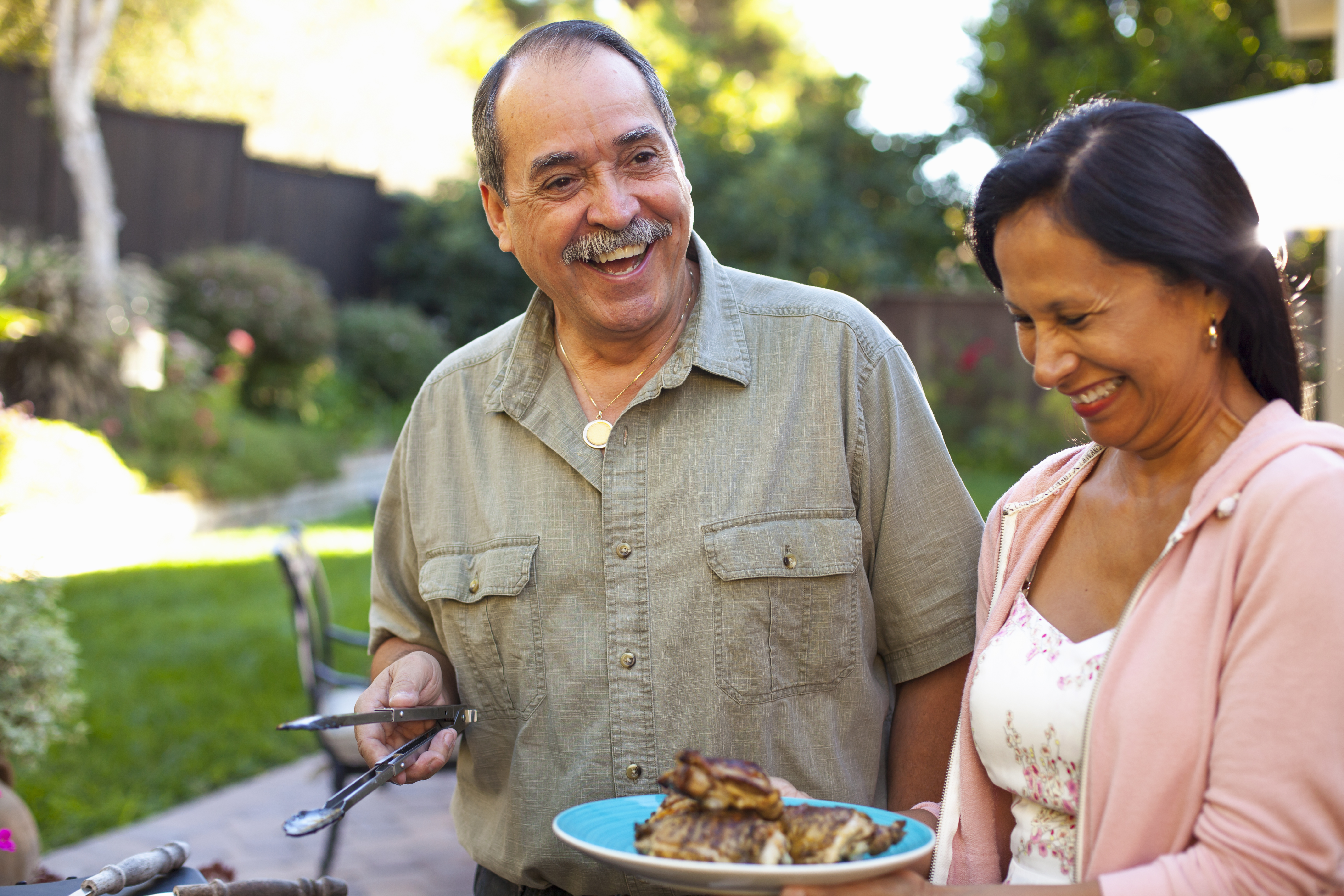AARP Hearing Center

From Brunswick stew to Smithfield HamTM, Virginia’s culinary history is chock full of delicious morsels originating from at least three cultures.
Chris Van Tassell of the Virginia Museum of History and Culture shared tidbits about the culinary history of the state of Virginia during a recent AARP Virginia virtual workshop called Virginia Treasures.
Van Tassell began by sharing, “Richmond is the capital city of Virginia that's developed more restaurants in recent decades. It's gotten a reputation as a foodie town. We are lucky we've got a lot of nice restaurants. Throughout the United States people's palates are becoming more sophisticated for more diverse offerings. In Richmond the first Mexican restaurant didn't open until the 1970s.”
Today one can get cuisine from all over this country and the world. Van Tassell gave examples in of culinary influences from native people, English and African cultures in Virginia.
Today’s cookout is nothing like the barbeque in the early days.
“Without refrigeration you need to figure out ways to cure food to keep it from spoiling, and smoking is a way to do it. By using a lot of indirect heat, it's a very slow cooking process,” Van Tassell said. Smoking meat is a combination of cultures that “converge here in Virginia as all three cultures were pretty familiar with cooking processes that involve smoking or drying meats.”
He further stated that, “it's common to call any kind of cookout a barbecue. If someone in Pennsylvania or New Jersey invited you to a barbecue they might just mean a grill with hot dogs and burgers. This is because in the mid-20th century companies started to advertise barbecue grills. A cookout grill and the term barbecue sort of became synonymous for cooking out. In the South if you tell people you're having a barbecue and you invite them over and you're just cooking hot dogs, people might be a little disappointed. They have a different expectation especially in a place like Virginia or Georgia. Barbecue usually means something that's a different kind of affair than a short cookout”. The key is “how much time is involved in the two different types of cuisine.” He defined a barbeque as, “very slow cooking meat that gave rise to sort of an all-day affair.” As the food was cooking this allowed a long “protracted gathering” that often centered around a political event where people would gather early in the morning and eat later in the day.
Many specific foods items were discussed but two that have significance outside Virginia are Brunswick stew and Smithfield HamTM. Van Tassell shared that, “Brunswick stew is often cooked in the South. It's usually consisting of vegetables and different kinds of meat although originally it would have been squirrel. There is a debate about the origins of Brunswick stew. Anything that gets popular, people all over want to claim it comes from where they are. The same is true with Brunswick stew. The main claim is between a community in Brunswick Georgia (which has a historical marker and a statue declaring the first Brunswick stew was served there in 1898) and, the other claim is from Brunswick, Virginia. Historically it's factual that Brunswick stew was first served in Brunswick, Virginia.
“In 1855 a Virginia newspaper reported that “the stew in the good old county of Brunswick was popular in the summer for entertainment. Men would shoot squirrels and stew them in a pot with sufficient water over a slow fire and in due time added tomatoes, butterbeans, corn, and the requisite condiments of salt and cayenne pepper,” Van Tassell said. Today chicken or beef is substituted for squirrel.
The story of the Smithfield HamTM is quite simple. “In 1926 the General Assembly of Virginia regulated the term Smithfield Ham by requiring that any Smithfield hog be peanut fed, raised in the peanut belt of Virginia or North Carolina and cured and treated by the smoke process in the town of Smithfield, Virginia. A little later they dropped the ‘peanut fed’ requirement. Pigs are fed soybeans and other things today, but the curing process must still take place in Smithfield, Virginia.”
The tidbits of Virginia cuisine have impacts on history. Even today there are 20th century influences that are unique to Virginia. These include, according to the Van Tassell, a “product called Duke mayonnaise, if you like a more vinegar flavored, less sweet type of mayonnaise. That's a product from Richmond and made in North Carolina. And Ukrops was a famous grocery store started by immigrant families from Slovakia that became big part of Richmond.”
For more information visit: https://virginiahistory.org/
Virginia Treasurers takes place on the third Wednesday of each month from 1:00 PM to 2:00 PM. (Zoom) The program will be on hiatus in the months of July and August. Presentations will resume in September 2022.
###































































